By Mark Hays, Global Financial Integrity, July 25, 2014
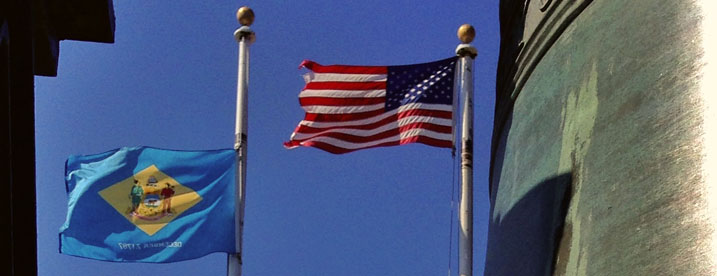
Half of Delaware’s State Legislators Urge their Congressional Delegation to Support the Incorporation Transparency and Law Enforcement Assistance Act
Last November, a former special agent for the Treasury Department, John Cassara, wrote an op-ed for The New York Times with the headline “Delaware, Den of Thieves?” Cassara described how the state of Delaware (along with Wyoming and Nevada) has become “nearly synonymous with underground financing, tax evasion and other bad deeds facilitated by anonymous shell companies”. He told of his frustration as a law enforcement officer trying to get information out of Delaware about the real owners and controllers of companies registered in the state.
This week, a debate has started in Delaware about its role as a corporate secrecy haven. One-half of the members of the Delaware State Legislaturehave sent a letter to the Delaware Congressional Delegation, urging them to support bipartisan federal legislation introduced by Senators Levin (MI-D) and Grassley (IA-R) to deal with anonymous companies.
To understand why this is such a big deal, it’s important to understand the extent to which Delaware is a global hub for company formation. More than 1 million companies are incorporated in Delaware, which is more than the actual number of living residents. That number includes 50% of all publicly-traded companies in the U.S. and 64% of the Fortune 500. This is no accident; Delaware law grants attractive tax arrangements and other measures that attract businesses to incorporate there. These measures have paid off – in 2011 alone, Delaware collected roughly $860 million in taxes and fees from these companies – about a quarter of the state’s total budget.
By Grace Zhao, July 24, 2014
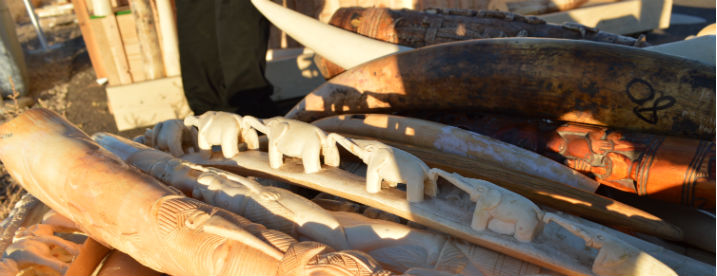
Any Effective Effort to Save Rhinos, Tigers, and Pandas from Extinction Must Tackle the Anonymous Companies that Propel the Illegal Wildlife Trade
Wildlife trafficking is more than illegally killing exotic animals; it is part of a complex criminal network that makes use of anonymous companies to illegally transfer both goods and money.
The illegal wildlife trade consists of the poaching, sale, and trade of exotic wildlife. Animals are used for food, medicine, commercial products, and even as pets. The illegal trade hosts a bevy of clientele in both developing and developed countries.
We probably all know that wildlife trafficking can be grisly and disturbing. Rhino horns are hacked off, turtles are stuffed into suitcases, and bear gall bladders are milked from living animals. The impact on biodiversity is astounding. According to our 2011 report, Transnational Crime in the Developing World, only 500,000 elephants exist today compared to a population of 1.2 million in the 1970s. The world’s tiger population has plummeted to just 3,200—down 95 percent since 1900, and an entire species of Rhino went extinct in 2009.
By Cobus de Swardt, Global Financial Integrity, July 9, 2014

Curbing Cross-Border Corruption via Anonymous Companies Should Be a Priority for Global Leaders in 2014, Says Transparency International’s Cobus de Swardt
Corruption around the world is facilitated by the ability to launder and hide proceeds derived from the abuse of power, bribery and secret deals. Dirty money enters the financial system and is given the semblance of originating from a legitimate source often by using corporate vehicles offering disguise, concealment and anonymity. For example, corrupt politicians used secret companies to obscure their identity in 70 percent of more than 200 cases of grand corruption survey by the World Bank.
For far too long, corrupt figures have been able to easily stash the proceeds of corruption in foreign banks or to invest them in luxurious mansions, expensive cars or lavish lifestyles. They do this with impunity and in blatant disregard for the citizens or customers they are supposed to serve.
Importantly, the corrupt are aided by complacent and sometimes complicit governments of countries with banking centers that facilitate money laundering and allow the corrupt to cross their borders to enjoy stolen wealth. Weak government actions are failing to prevent the corrupt from evading justice and have enabled cross-border transfers of corrupt assets. Complacent governments responsible for protecting the public from such criminal acts are de facto supporting impunity for corruption.
By Grace Zhao, July 8, 2014

Kleptocrats and criminals are always looking for new ways to properly launder their illicit wealth, and it now appears that many of them are turning to Manhattan real estate.
Unsavory investors are increasingly purchasing New York City flats in an attempt to squirrel away ill-gotten funds or dodge billions of dollars in taxes, according to an in depth investigation by New York Magazine and the International Consortium of Investigative Journalists (ICIJ). Some might even say that New York City itself is becoming a sort of tax haven.
Since the financial crisis of 2008, 30 percent of all condo sales in the city were purchased through foreign entities—many of them anonymous shell companies—yet much of the purchased property remains vacant. The census bureau estimates that 30 percent of the apartments from 49th to 70th streets and between Fifth and Park Avenues in New York City are empty for up to 10 months of the year.
By Grace Zhao, July 2, 2014
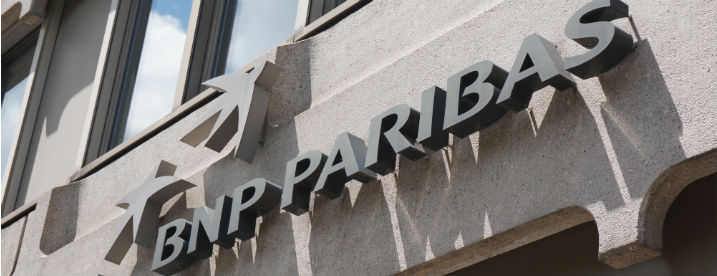
A couple weeks ago, we wrote a blog post hoping that discipline would go further up the BNP food chain. Unfortunately, the U.S.-BNP Paribas settlement still ineffectively punishes the French bank.
France’s BNP Paribas has agreed to pay a historically large fine of $9 billion for violating sanctions on Sudan, Iran, and Cuba. At face value, this seems to be a big deal. After all, no bank has ever been fined so much for similar crimes.
Yet yesterday, shares in BNP Paribas rose 4 percent, even after the bank pled guilty to a criminal charge. Moreover, no single person within the bank has been charged specifically with any crimes, allowing those who abused executive power to slip away relatively unnoticed. BNP did fire a few employees. Some left on their own. Others faced demotions and pay cuts, small atonements for the billions of dollars that the bank illegally transferred.
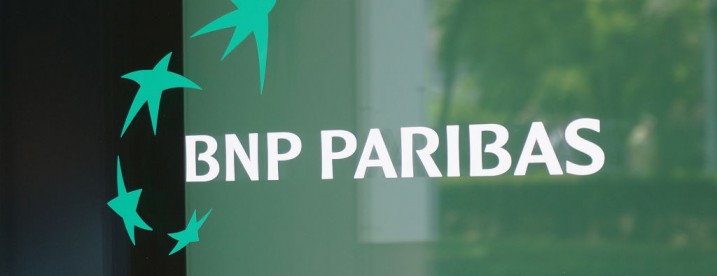
U.S. Government Fails Again to Hold Individuals Accountable for Wanton Violations of U.S. Sanctions Law, Providing No Deterrent to Future Misconduct
Settlement Fits Same Mold as Previous Cases, Perpetuates “Too Big to Jail”
WASHINGTON, DC – Global Financial Integrity (GFI) expressed skepticism today that the settlement reached between the United States government and BNP Paribas SA would effectively punish the company for its systematic subversion of U.S. sanctions over a decade-long period or effectively deter similar conduct in the future.
U.S. Attorney General Eric Holder announced late on Monday that “between 2004 and 2012, BNP engaged in a complex and pervasive scheme to illegally move billions through the U.S. financial system on behalf of sanctioned entities” in Sudan, Iran, and Cuba, going “to elaborate lengths to conceal prohibited transactions, cover its tracks, and deceive U.S. authorities.” This pattern of behavior continued despite warnings by U.S. officials, opinions from reputable international law firms, and repeated statements from the bank’s own compliance officials that this conduct was illegal. According to the New York Department of Financial Services, the transactions involved totaled greater than $190 billion.
By Michele Fletcher, June 26, 2014

Last week, Namibian activists raised concerns about transfer pricing in Africa’s extractive sector in an open letter to De Beers. Their letter comes at a critical time in which transfer pricing and tax havens have contributed to an exorbitant amount of capital flight from developing countries. Namibia’s economy is hugely dependent on the extractive sector, particularly in diamond exports, which alone account for 10% of GDP. With increased scrutiny into transfer pricing just across the border in South Africa’s platinum mines, these Namibian activists have delivered a timely, earnest demand to investigate transfer pricing in their own country.
Multinational corporations (MNCs), especially those which operate in Africa, are coming under increased scrutiny by governments, media, and the public over their bookkeeping and payments to governments. The extractive sector in particular has been the focus of new regulations on financial transparency: an extremely positive development, but one which has so far missed an opportunity address larger issues concerning abusive transfer pricing and how MNCs of all sorts conduct their fiscal operations.
By Michele Fletcher, June 20, 2014
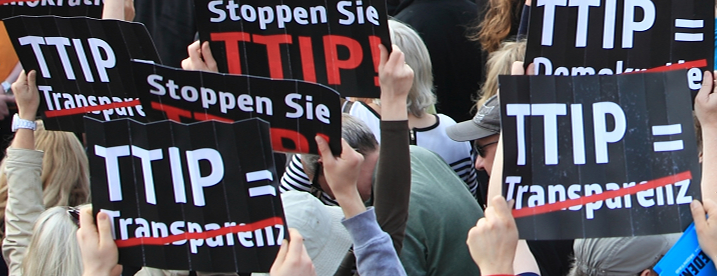
The Transatlantic Trade and Investment Partnership seeks to unite U.S. and EU markets: a gigantic trade deal uniting over 800 million consumers across the United States and the European Union, and yet all its important documents remain shielded...








